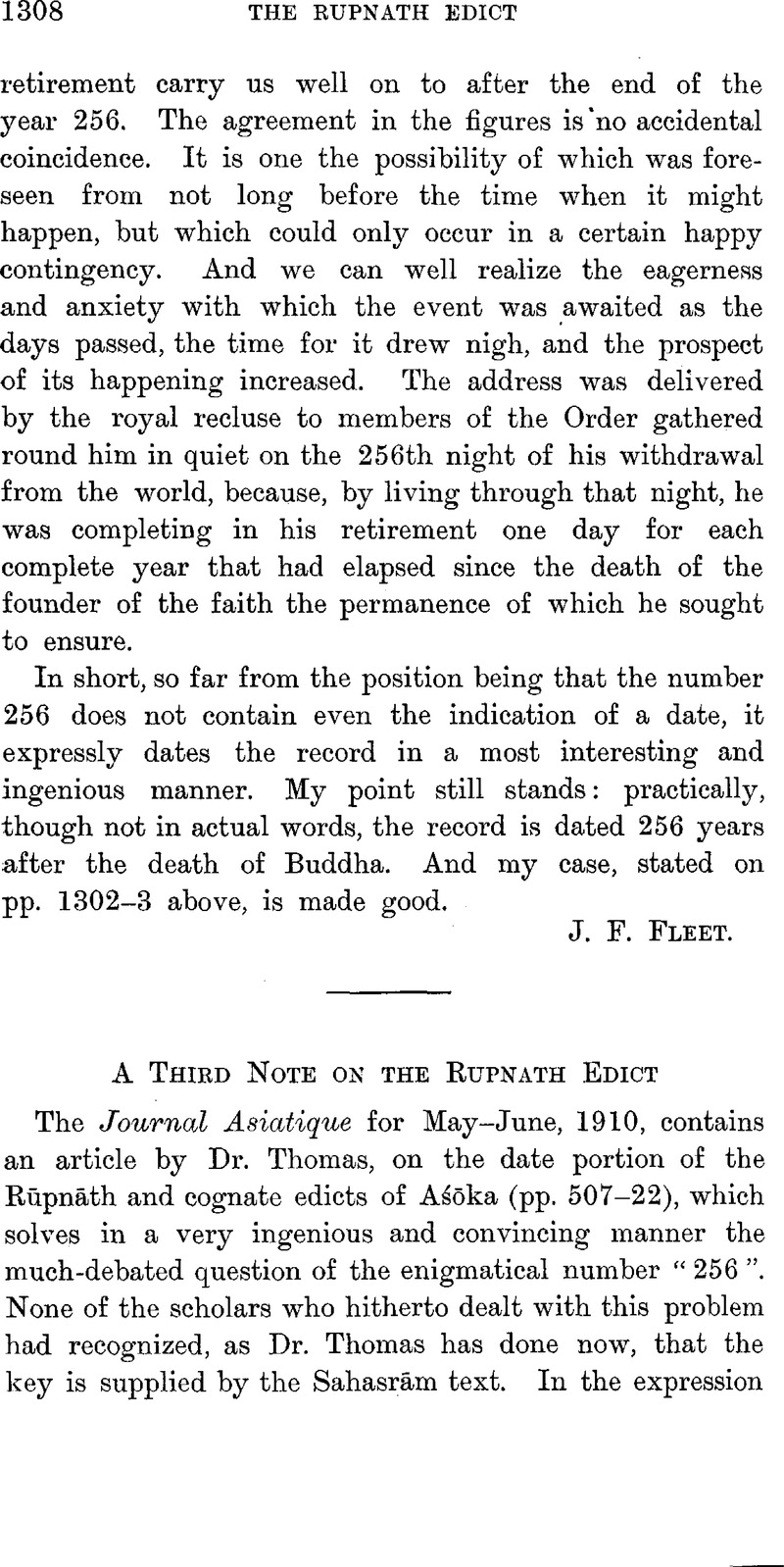No CrossRef data available.
Article contents
A Third Note on the Rupnath Edict
Published online by Cambridge University Press: 15 March 2011
Abstract

- Type
- Miscellaneous Communications
- Information
- Copyright
- Copyright © The Royal Asiatic Society 1910
References
page 1310 note 1 Instead of sa[ra]k[e] the other texts have upāsahe, ‘a lay-worshipper’.
page 1310 note 2 See my Second Note, above, p. 145 f.
page 1310 note 3 Viz., as shown by M. Senart, the “terrestrial gods” (bhūdēva) or Brāhmaṇas.
page 1310 note 4 According to the thirteenth rock-edict these neighbours (antā) would be the Seleucidan king of Syria and other Greek kings in the west, and the Ghōḍas and Pāṇḍyas in the south. In connexion with this I may note that the word Taṁbapamṁnī in the second and thirteenth rockedicts seems to refer to the river Tāmraparṁī in the Tinnevelly District, and not to Ceylon: compare MrSmith, V. A., ZDMG., vol. 63, p. 211Google Scholar.
page 1311 note 1 i.e. the subject-matter or contents of Aśōka's address.
page 1311 note 2 Read perhaps lekhāpela[ve*] with Bühler, , Ind. Ant., vol. 22, p. 305Google Scholar.
page 1311 note 3 For uyañjana see DrThomas, , Ini. Ant., vol. 37 (1908), p. 22Google Scholar.
page 1311 note 4 DrVogel, (Ep. Ind., vol. 8, p. 171)Google Scholar has shown that vivāseti has the meaning of the simple verb, while the causative is vivāsāpeti.
page 1311 note 5 On the (redundant) word sata see Dr. Thomas, loc. cit., p. 521.


